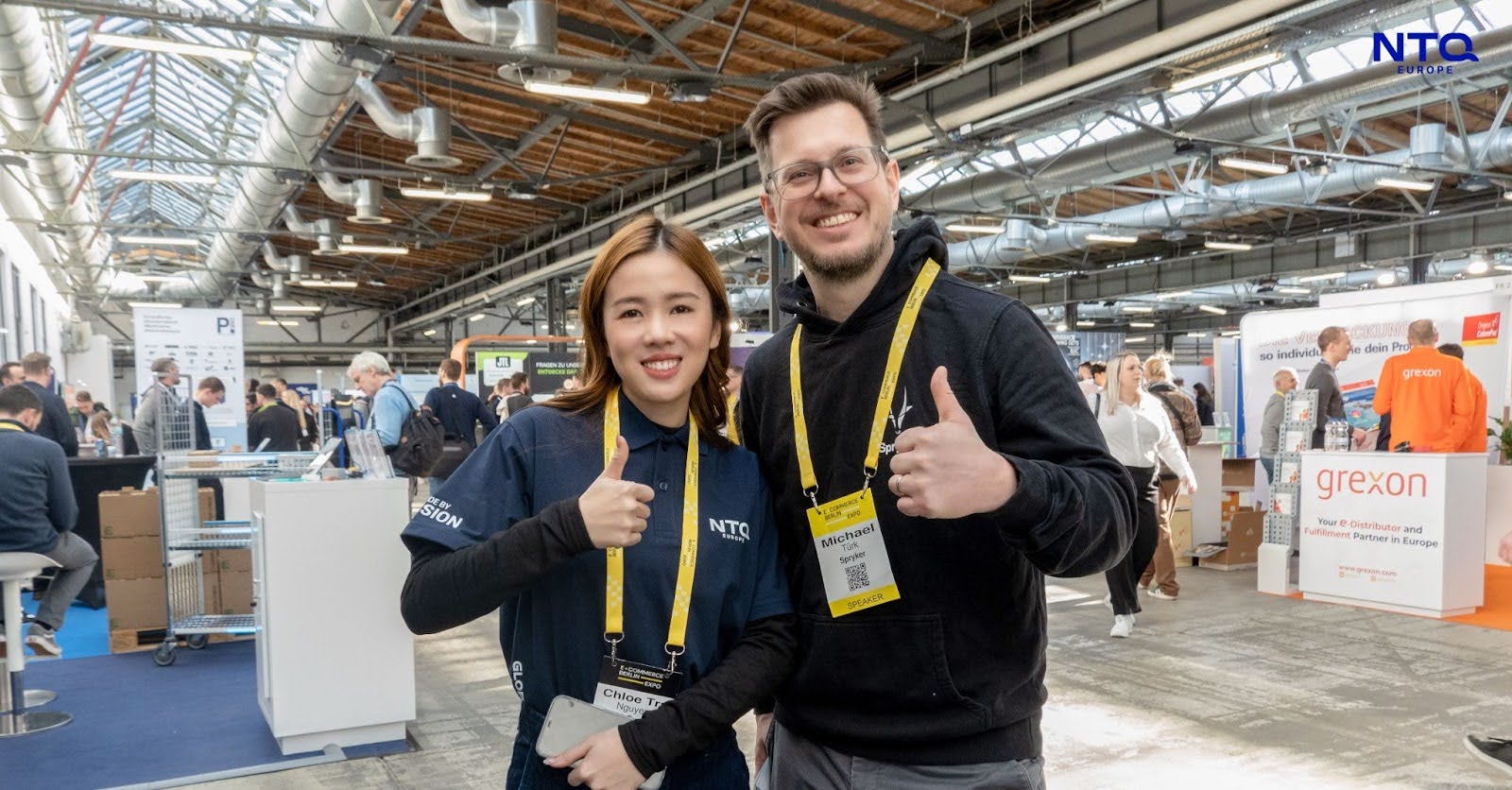Why Traditional Commerce Strategies Are No Longer Enough
According to Michael Türk, the traditional digital commerce model – primarily focused on selling products online and maximizing margins – is increasingly inadequate in today’s market dynamics. With large platforms consolidating their dominance and factory-to-consumer models driving down prices, businesses can no longer rely solely on conventional e-commerce playbooks. Instead, they must find new ways to generate value, often by layering services and experiences atop their core offerings.
At NTQ Europe, we strongly echo this perspective. Across both B2C and B2B markets, companies creating service-oriented ecosystems — offering added value such as personalized support, post-sale services, or subscription models — are better positioned to retain customers and defend margins. In B2B commerce, particularly where customer relationships are often complex and long-term, innovating beyond the transaction becomes a critical differentiator.
Case Studies: How Leading Brands are Transforming Commerce Models
During our discussion, Michael Türk shared compelling examples of companies that successfully redefined their commerce strategies to create new customer value.
One notable example is Scania, the commercial vehicle manufacturer, which built an auctioning platform to resale existing trucks and equipment within its ecosystem. Instead of focusing solely on new product sales, Scania expanded its service offering to promote sustainability and maximize the lifecycle value of its vehicles. From NTQ Europe’s perspective, this is a prime illustration of how service ecosystems can extend customer engagement, create new revenue streams, and reinforce brand loyalty in industrial sectors.
Another innovative case is ZF, a global automotive technology supplier. ZF launched a comprehensive marketplace connecting spare parts, repair, and garage service partners across regions like Brazil and beyond. ZF transformed isolated transactions into a holistic customer experience by creating an integrated platform around its core products. NTQ Europe views this as a model for building partner-driven ecosystems where complementary services enhance the primary offering and deepen client relationships.
The retail giant Aldi also provides a compelling example. Facing shifts in consumer expectations, Aldi revitalized its traditional brick-and-mortar presence by introducing curbside commerce services, such as click-and-collect, alongside their in-store offerings. This hybrid model allowed Aldi to deliver greater convenience while maintaining the strength of its local store networks. For NTQ Europe, Aldi’s approach reflects the importance of seamless omnichannel integration in modern commerce strategies — a critical success factor we prioritize when advising our clients on digital transformation initiatives.

Each case study underscores a common theme: businesses that successfully adapt their commerce models focus on customer value, innovate service offerings, and build connected ecosystems beyond the traditional point-of-sale interaction.
Speed-to-Market and Quality: Striking the Right Balance
Michael Türk emphasized the importance of agility in today’s digital commerce arena. He advocated starting small, learning fast, and iterating based on honest customer feedback rather than striving for perfect launches. Businesses that can move quickly to market, gather insights, and continuously refine their offerings will succeed.
At NTQ Europe, this agile philosophy underpins our software development methodologies. We encourage clients to adopt incremental rollouts, using MVPs (Minimum Viable Products) and phased deployments to validate ideas early. By combining rapid delivery with rigorous quality assurance, businesses can achieve scalability without sacrificing the customer experience — ensuring that every iteration drives tangible value while positioning the brand for long-term success
AI: A True Game-Changer for the Next Era of Digital Commerce
Discussing future trends, Michael Türk pointed to AI as a transformative force that will redefine digital commerce over the next decade. In his view, traditional online shops as we know them may soon be replaced by more dynamic, AI-driven experiences — including intelligent agents, digital sales rooms, and hyper-personalized customer journeys.
From NTQ Europe’s perspective, this prediction is already materializing. Through projects integrating AI-powered chatbots, smart recommendation engines, and predictive analytics, we witness firsthand how AI enhances not just frontend experiences but also backend efficiencies. As businesses explore technologies like Generative AI, conversational commerce, and intelligent search, the ability to blend human-centric design with AI capabilities will become a decisive competitive advantage.
We believe that successful AI adoption in commerce requires not just technical integration, but a strategic vision: understanding customer needs, creating emotionally resonant experiences, and using AI as an amplifier — not a substitute — for human connection.
Challenges in AI Adoption: Strategy Before Technology
Despite AI’s tremendous potential, Michael Türk issued a critical reminder: “AI is not a solution in itself, it is a tool”. Businesses that adopt AI without a clear strategy risk investing in technology that delivers little real value. Knowing what your customers expect, identifying gaps in your value proposition, and aligning AI applications with strategic goals are essential first steps.

At NTQ Europe, we emphasize a business-first approach to AI integration. We guide our clients through strategic workshops to define priorities, map customer journeys, and identify where AI can create measurable impact — improving operational efficiency, enhancing personalization, or uncovering new growth opportunities.
Without a customer-centric roadmap, AI risks becoming a costly distraction rather than a transformative asset. Success belongs to those who use AI purposefully, iteratively, and always with the end-user experience in mind.
Conclusion: Innovation, Agility, and Human-Centric Commerce
Our conversation with Michael Türk at E-commerce Berlin Expo 2025 reaffirms that the future of digital commerce will belong to those willing to rethink old models, innovate boldly, and put customers at the center of every strategic decision.
At NTQ Europe, we are committed to helping businesses navigate this new era. We blend AI-driven innovation, agile software development, and deep customer insights to deliver faster, smarter, and more human commerce solutions.
If your organization is ready to transform how it connects, engages, and grows in the digital economy, NTQ Europe is ready to partner on this journey.
👉 Discover how NTQ Europe powers next-gen digital commerce
👉 Contact us for a tailored consultation
Let’s build the future of commerce together.



















